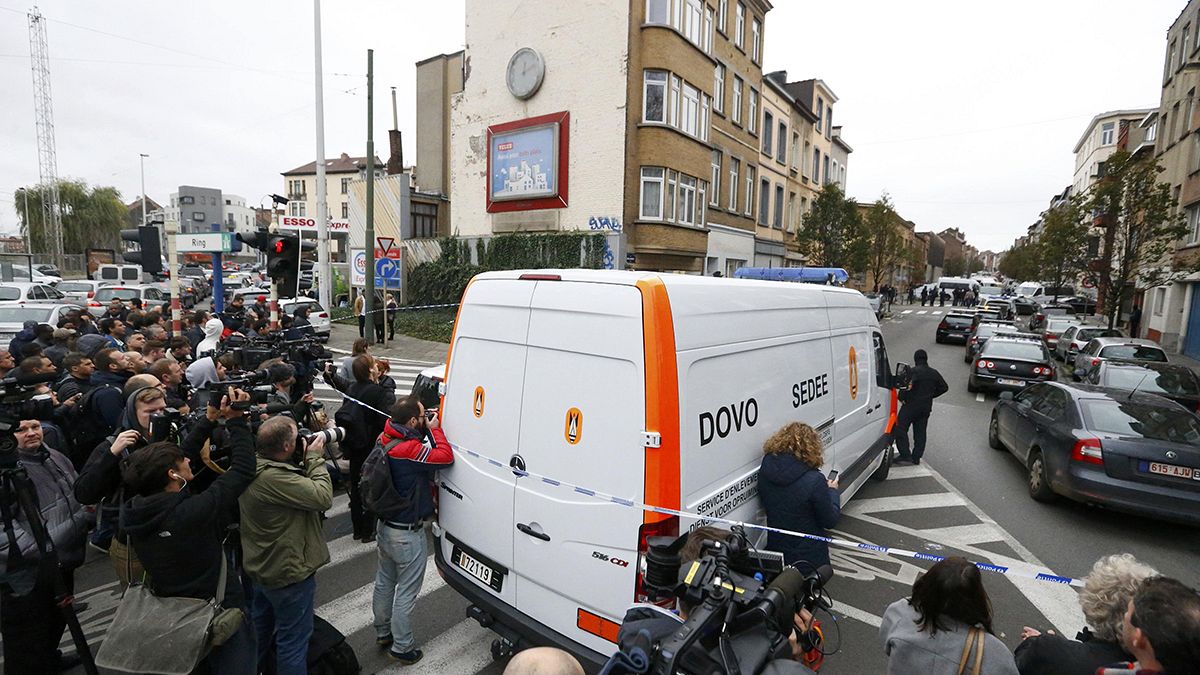Terror attacks on Charlie Hebdo, the Jewish Museum in Brussels, Madrid commuter trains, and now the latest in Paris all have links to one Brussels
Terror attacks on Charlie Hebdo, the Jewish Museum in Brussels, Madrid commuter trains, and now the latest in Paris all have links to one Brussels neighbourhood.
Molenbeek has a diverse immigrant population and suffers from high unemployment- some 40 percent of young people there are out of work.. It also has sent a higher proportion of its residents to fight in Syria than anywhere else in Europe.
“When you hear what happens, you’re shocked! When you see that it’s people around you, from your neighborhood, you ask yourself: ‘wow, what is going on here?’” one resident said.
The neighbourhood itself doesn’t appear to be particularly downtrodden, with plenty of green spaces and large houses.
Françoise Schepmans, Mayor of Molenbeek, observes: “Daily life in Molenbeek works well – but that’s maybe what has fooled us: that in ordinary life, there are no difficulties. And next to that, there are people living in the shadow and we have left them living in the shadow. We didn’t ask ourselves the right questions!’
However, most locals reject the borough’s portrayal as a jihadist breeding ground.
Yasmine Benhammou of ‘Médecine pour le peuple’, a Molenbeek medical centre said: “We are in a state of disarray. We condemn these attacks in the strongest possible terms. That said, the whole of Molenbeek is not guilty for what happened – and especially not to mix things up with religion because religion has never permitted anyone to the life of anyone else, whoever they are.”
Euronews interviewed Claude Moniquet, a former intelligence agent and cofounder of the European Strategic Intelligence and Security Center:
Euronews
Is Molenbeek the hub of jihadist terrorism in Europe?
Claude Moniquet
No, it’s not the hub of European jihadism.
In a lot of French cases, for a long time, for 20 years, we find links to Brussels. We find links to Molenbeek. When I worked 20 years ago on Armed Islamic Group, which planted bombs in Paris, we found links to Molenbeek.
So yes, there is clearly a problem in Molenbeek which is due to the fact that there is a linguistic community and which is also close to France.
And so there needs to be mutual crackdown on Islamist movements on both sides of the border.
Euronews
Is there a Brussels, or Belgian problem in the fight against jihadism in Europe?
Claude Moniquet
This is a difficult situation, which is difficult to manage for everyone. For the French, just as it is for the British or the Belgians.
There has been too much tolerance for too long and then, without doubt, too few means to tackle a threat today which is a huge threat.
Ten years ago, at the time of Al Qaida, we saw a Europe with a few hundred sympathisers towards Islamist terrorism.
Today the Islamic State has some 6,000 to 7,000 Europeans engaged in jihad or who want to be.
And perhaps 10,000 to 15,000 sympathisers. The scale of the threat has totally changed.
Euronews
The Belgian minister of the interior has said that he wants to clean up Molenbeek. What is trying to do with these words?
Claude Moniquet
I think the term ‘clean up’ was a poor choice.
There’s a local problem in Molenbeek, which is the fact that in a difficult commune, local authorities have for political and electoral reasons allowed a situation to develop which is now out of control. They’ve really discouraged the local police by forbidding them to do certain things, certain investigations, certain checks and surveillance.
In Mons, Jambon said that a number of decisions taken last January and which should have been carried out by the police, were not done so in Molenbeek.
So clearly I think as the minister of interior has decided to take his responsibilities and impose himself on the police in Molenbeek and run it as the police is run in other countries and cities in Belgium.
Euronews
Regarding the measures that we could put in place against this type of attack in Europe, what do you think?
Claude Moniquet
What’s needed are strong legal measures. In France, that’s what will happen. There will be a series of measures, including without any doubt surveillance measures.
Maybe some kind of house arrests and if the situation worsens still, detention without trial, which would be applied against certain people.
Belgium doesn’t have the same legal framework so Belgium won’t lock up 500 people tomorrow, just like that. It’s impossible.
But I believe what’s possible in Belgium is an ongoing debate on voting in laws that will allow for the systematic criminalisation of those people who come back from Syria.
It’s not the case today. Today, you have to prove that someone committed such a crime in such a place on such a day against such a person. It’s clearly impossible.
Euronews
What do you think about the possibility of having a centralised European intelligence service?
Claude Moniquet
Intelligence is something very complicated which is not practiced in the same way in every country.
On the one hand you have very liberal countries, such as the Scandinavian countries or the Netherlands.
On the other, you have France and the UK. You don’t have the same way of working.
The French and the British have very offensive-minded secret services which act abroad, in an illegal manner, which allows them to carry out targeted assasinations. That is something the Danish, the Swedes, the Belgians or Luxembourgers will never do.
We don’t have the same methods and we don’t have the same culture of spying. And in general, a reluctance to share secrets. We are there to obtain secrets not share them.
